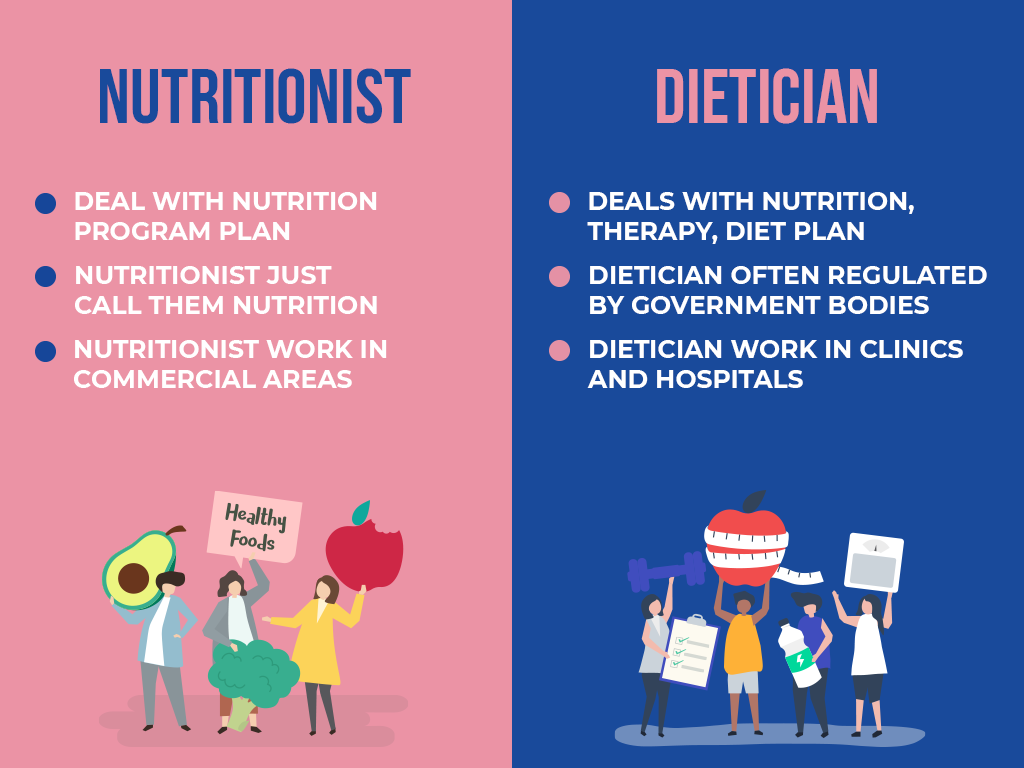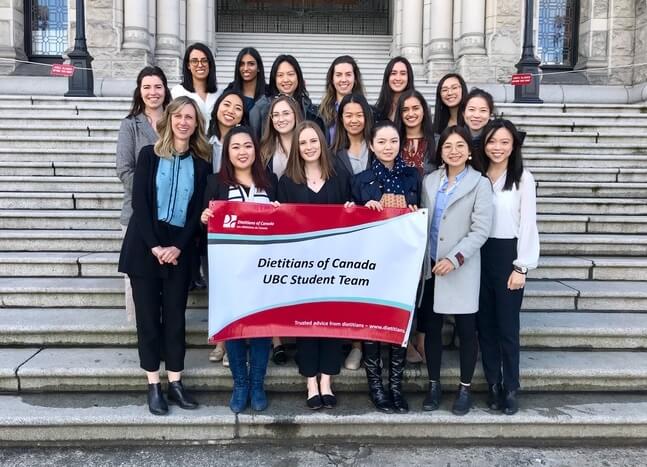All Categories
Featured
Table of Contents
The sorts of Nutritional experts are: and. The former are those people that use the clinical approach to examine nutrients, both as specific compounds and as they connect in food and nourishment while the latter are experts that assist in detecting the dietary problems of communities and in finding options to those troubles.
: They deal with health cares and international health and wellness organizations.: They are accountable for large-scale food planning and service.: They are professionals in nourishment and aging. They are Board accredited in Gerontological Nourishment with the American Dietetic Association.: They are mostly involved with dietary associated study in the medical element of nourishment in illness states, public element on key, secondary and in some cases tertiary health prevention and foodservice element in concerns entailing the food gotten ready for individuals.
How Much Does Best Nutritionist For Weight Loss Service Cost?
, and newspapers-- either as a professional guest point of view, routine writer or guest, or for resource, restaurant, or recipe development and critique.: These work under exclusive technique. As explained over, all dietitians are nutritional experts yet not all nutritionists have the qualifications and qualifications to be called dietitians.
This means precisely the exact same point as Registered Dietitian (RD), a term that has actually remained in use for a long period of time. All RDs are RDNs yet some choose to call themselves that and some do not. Better complicating matters are permit requirements. While accreditation to become an RD or RDN is regulated by the Academy of Nutrition and Dietetics a national company licensure is regulated by individual states.

In order to give clinical nourishment therapy and qualify as providers for insurer, a dietitian needs to be certified by the state. According to the Bureau of Labor Stats, the demand for dietitians and nutritional experts is anticipated to enhance by 20% in between 2010 and 2020 this is a much faster development price than the standard for all professions.
Should I Hire A Professional Pressure Washing Contractor?
There are significant distinctions in settlement based on field of expertise, with Professional Pediatric Dietitians and Dairy products Nutritionists balancing around $90,000. In 2014, The Bureau of Labor Stats (BLS) discovered that the top 10% of dietitians and nutritional experts earn greater than $79,000, and the lower 10% less than $36,000 - Personal Nutritionist. A mean hourly wage of $27.62 was computed for both markets, with the top 10% earning above $38.00 per hour, and the lower 10% earning below $17.00 per hour

There is a range of tasks readily available in various settings for those who want to work with the public, as well as for those that choose more research-focused work. Several enter into among these fields in order to assist people live healthier lives which can be tremendously fulfilling.
With present stats that one-third of the U.S. populace is obese, in addition to a large number of elderly U.S. locals, dietitians and nutritionists are likely to have an extra substantial role in the future. My Strategy places dietitians and nutritionists at # 53 in their joy index of top 300 occupations with the greatest work satisfaction scores.
In addition to attending a certified program, many states need dietitians to be licensed or to have professional qualification, or both. In comparison, only about fifty percent of states call for such credentials for nutritional experts. Even so, numerous expert functions for nutritional experts phone call for at the very least a bachelor's degree, and the same qualification is readily available for nutritional experts and dietitians alike.
How Do I Choose A Nutritionist For Athletes Service?
It's crucial to keep in mind that beginning Jan. 1, 2024, you'll also need to hold a master's degree to make an RD/RDN credential. Common bachelor's levels for dietitians consist of medical nourishment, dietetics, and public wellness. Your core courses may include: Food scientific research Chemistry Healthcare plan Professional nourishment Biostatistics Microbiology Food service management You'll additionally require to finish a dietetic teaching fellowship.

And to progress in the field, you'll likely need a master's degree. So, whether composed in law or not, dietitians and nutritional experts often times need a comparable education. Typical bachelor's levels for nutritionists include nutrition science or a relevant discipline, such as dietetics, kinesiology, food system administration, or biochemistry. Some of your training courses could include: Fads in nutrition Biomedical data Medical nutrition Food, nourishment, and actions Nutritional ecology Community nutrition Physiology Some level programs consist of teaching fellowships, but in others you'll need to discover opportunities on your very own.
The number of hours you'll need might depend upon needs in the state where you'll work. Whether you plan to make a credential or otherwise, it's a good idea to complete a minimum of one teaching fellowship to acquire important experience before seeking a full time role. Licensing and certification requirements for nutritional experts and dietitians vary from state to state.
What Is The Average Cost Of Sports Dietitian Services?
A specialist accreditation shows your expertise and expertise in your field. These are not certificate programs. A certificate suggests that you have actually taken a training program to find out an ability. Qualification shows your proficiency expands past your education and learning which you've passed a certifying test. Here are the top accreditations for dietitians and nutritionists.
The titles are essentially the very same. There's no professional difference between them, and you're complimentary to select which one you wish to use based on individual choice. To take the qualification examination, you must: Earn an undergraduate level that's recognized by the ACEND Full a dietetics teaching fellowship After Jan. 1, 2024, you'll require to make a master's level to get approved for the certification.
The Best Sports Dietitian?
There is a range in wages, with the bottom 10% around $44,910 and the top 10% around $98,830, according to the BLS. Nutritional expert and dietitian duties are expected to expand 6.6% with 2032, according to the BLS.
This does not suggest that one profession is remarkable to the other, as they both have different functions and certifications that may in some cases overlap. If you intend to find out more concerning what makes these careers unique, maintain reading. Dieticians are experts who help improve the lifestyle with healthy food selections.
What Do Accredited Sports Dietitian Services Include?
Nutritional expert suggestions about nutrition's effect on wellness. They help people embrace healthier ways of eating and create customised plans based on goals. Their services include nutritional assessment and counselling, meal planning and establishing healthy eating programs. Although some have official education and learning and qualifications, others may have much more standard qualifications. The area is less regulated than dieticians; hence, nutritional experts' degrees of competence and certifications can vary.
There are a number of differences between dieticians and nutritionists. Here are the training and background requirements. Diet professionals normally hold a bachelor's level in dietetics, nutrition, or a relevant field. As their professions breakthrough, several dieticians go after postgraduate degrees, like a Master's or Doctorate, to specialise in specific areas of nourishment. Diet professionals should undertake supervised sensible training as component of their education to gain hands-on experience in medical setups, area nutrition programs, or food service administration.
Latest Posts
Surgical Bariatrics – South Hedland 6722
Who Has The Best Celiac Nutritionist?
Optifast Specials – Kwinana 6167